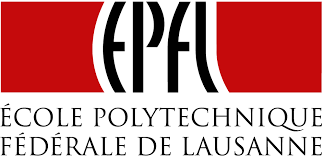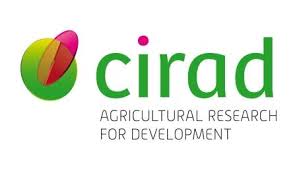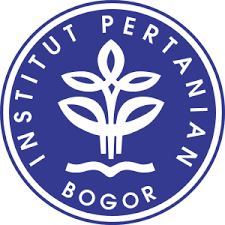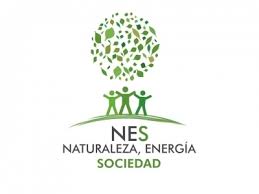
Country situation
When it comes to oil palm cultivation in Africa, Cameroon represents a major region of growth as Africa’s fourth largest palm oil producer. However, it is not without its issues – particularly around productivity and lack of competitiveness. Low productivity is the result of aging plantations, the use of unselected seedlings, the absence of fertilization and low milling yields. Nonetheless, Cameroon has a huge domestic and regional market for crude palm oil, while its numerous well-established artisanal mills provide a degree of independency from large industrial operation.
In a nutshell – a 3-minute overview of Cameroon’s issues:
Goal
OPAL’s Cameroon team was responsible for all project activities in the country. The team developed the CoPalCam role play game, and initiated a series of MSc and Phd studies aiming to improve knowledge around the smallholder palm oil sector in Cameroon. The team facilitated field research undertaken by teams dealing with biodiversity and landscape patterns, hydrological services and soil processes, with an overall objective to contribute to the sustainable development of the palm oil sector in Cameroon.
People
Major partners to the OPAL project in Cameroon were Ludovic Miaro, Durrel Halleson, Fideline Mboringong and Micress Kamto (of Blessed Memory) from WWF Cameroon, Emmanuel Ngom from PDPV-MINADER, Patrice Levang from IRD/CIFOR, Mesmin Tchindjang, Eric Voundi and Damien Marie Essono from University of Yaounde 1. Occasional support has been provided by Eglantine Fauvelle and Laurène Feintrenie (CIRAD) and Raymond Nkongho (from the University of Buea). Every year, through internships, master’s students came on board to answer specific research questions, such as Aimée Kwembi and Kenneth Mbache in 2015, and Théo Martin and Marie Gaëlle Ngo Njiki in 2016, Bauclaire Azong Ngoko who joined our team in 2018.
Main activities
The CoPalCam role playing game was first developed and tested in Montpellier. After being tested by the team in Cameroon and its parameters adjusted, the participants (smallholders, medium holders, cooperatives, agro-industries, retailers and district representatives from the Ministry of Agriculture) who helped to fine tune the game. Participants were highly receptive to learning through the play sessions, which fostered a heated debate among participants, contributing to increased understanding of the sector. The game was played by local actors in six locations: Ekondo Titi, Muyuka, Eseka, Dibombari, Limbe and Yaounde.
In early April 2016, a special game session was organized in Yaoundé with members of the Interministerial Commission on Oil Palm, a commission bringing together high-level civil servants from the ministries of Commerce, Finance and Agriculture, agro-industries, second processing industries and producers’ unions. The game was a huge success. Find out more here.
Main Outcomes
- Increased Mobilisation and engagement of stakholders for sustainable development of the oil palm sector
- Promoting win-win partnerships between smallholders and palm oil companies
- Providing critical database for development of a national palm oil strategy
Publications
Miaro III L., Mboringong F., Ngom E., Voundi E., Halleson D., Etoga G., Tchindjang M. (2021) Entre production nationale et importation, les enjeux du déficit de la production de l’huile de palme au Cameroun. Revue Scientifique et Technique Forêt et Environnement du Bassin du Congo Volume 16. 62-73, Avril (2021). DOI : https://www.doi.org/10.5281/zenodo.4699482
Tchindjang M., Miaro III L., Mboringong F., Etoga G., Voundi E. & Ngom E., (2021) Environmental Impacts of the Oil Palm Cultivation in Cameroon. DOI: http://dx.doi.org/10.5772/intechopen.97862
Studies and MSc. theses
- The place and role of smallholder cooperatives in the development of the oil palm sector in Cameroon (Aimée Kwembi, 2015);
- The feasibility of establishing a palm oil micro mill managed by smallholders (Kenneth Mbache, 2015).
- The contribution of palm oil to household economy (Marie Gaëlle Ngo Njiki, 2016);
- Whether smallholdings or agro-industries would be best for oil palm development in Cameroon (Théo Martin, 2016).
- Enjeux socioéconomiques et dynamique du ouvert forestier liés à la culture du palmier à huile à Edéa 1er. Guy Donald Abasombe. Mémoire de Master UYI département de géographie. Spécialité Dynamique de l’environnement et risques., mars 2017, 181p.
- Assessing The Legal; Institutional and Policy Framework for Mainstreaming Sustainability in The Palm Oil Sector in Cameroon (Bauclaire Azong Ngoko, 2018).
- Elites urbaines et dynamiques socio spatiales et environnementales de l’élæiculture dans le département de la Sanaga Maritime, Région du Littoral, Cameroun. Ndjogui, T. E., Thèse de Doctorat PhD en Géographie, Université de Yaoundé 1, 2018.
- The impacts of Crude Palm Oil importation on domestic production in Cameroon (2019)
- Identification et cartographie des aires à hautes valeurs de conservations dans certains paysages de production. WWF, Yaoundé. By Mesmin team (2021)
- Cultures intercalaires dans les palmeraies: mobiles socioéconomiques et contingences environnementales dans la commune de Pouma By Joël
- Cultures intercalaires dans les palmeraies: déforestation et mutations écologiques dans la paysage de la commune de Ngwéi by Mindjeme Axel Willy
OPAL Videos
- Video showcasing OPAL’s efforts aimed at promoting sustainable oil palm development in Cameroon (4 minutes) Watch here.
- Video showing the achievements of the OPAL Project in Cameroon (14 minutes). Watch here.
- Video on OPAL’s participatory approach in Cameroon (6 minutes). Watch here.
Next Steps.
- Sharing the outcomes of the project to a wider audience
- Building partnerships with stakeholders in promoting sustainable palm oil development
Related topics:
On the road to sustainable palm oil production in Cameroon: A participatory role-playing game shows the advantages of multi-player collaboration (April 2021)
This article summarizes the OPAL work in Cameroon. Read the full story here.
Presentation at the World Sustainability Summit (September 2020)
Fideline Mboringong and the OPAL Team presented: Mainstreaming sustainability in the palm oil sector in Cameroon. Watch the presentation here.
Training of journalists (September 2018)
To help journalists in Cameroon gain a better understanding of the country’s palm oil value chain, OPAL’s Cameroon team organized a two-day training workshop in Douala, Cameroon in September 2018, where journalists played the CoPalCam game. By increasing their understanding, this workshop aimed for journalists to be able to write articles of better quality on the topic and have more impact on the different actors. Read more.
National Palm Oil Policy Dialogue (February 2018)
The OPAL team in Cameroon organized a National Palm Oil Policy Dialogue to leverage policy towards sustainable palm oil development in Cameroon. The three-day workshop was organized under the auspices of the Minister of Agriculture and Rural Development (MINADER) under the theme ‘Sustainable Palm Oil Development in Cameroon: Investing in a sustainable future for people and nature’. Read more here.
Game session at the highest level (April 2016)
In early April 2016, a special game session was organized in Yaoundé with members of the Interministerial Commission on Oil Palm, a commission bringing together high-level civil servants from the ministries of Commerce, Finance and Agriculture, agro-industries, second processing industries and producers’ unions. The game was a huge success! Find out more here.
Game sessions with stakeholders (August 2015)
Role-playing game sessions with palm oil supply chain stakeholders, where the CoPalCam game was tested and refined.
Report and photos here.
This presentation – given at the ScenNet’2016 Conference, 24-26 August 2016, Montpellier, France – shows how the model and game were constructed, and what the outcomes were.












